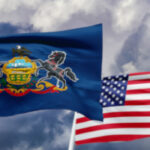The world has changed a lot over the past several years, and when it comes to sports betting, lotteries and casinos, there has been a determined shift towards mass legalization, so much that even outposts such as the United States have given in and allowed each state to make up its own mind. Yet, illegal gambling has continued to thrive, and the Costa Rican Lottery has been forced to sound the alarm.
Black Market Lottery Sales on the Up in Costa Rica
A red flag is once again raised by the Social Protection Board (JPS) and security advisor Bryan Sandí Valverde who has been witnessing an increase in the black market, both in terms of volume and scope. According to Valverde, at least 65% of all lottery sales in Costa Rica are done through illegal shops, which in turn bites into the proceedings that the treasury would be raising. Valverde believes that this could be depriving the government of CRC600 million or roughly $930,000.
This could be a regulatory issue says Diario Extra, a local media outlet that has also shown interest in the issue. Costa Rica does not pursue illegal lottery sales too badly nor does it distinguish clearly between the two. However, this creates a litany of underpinning issues. For example, illegal shops often operate without any accountability.
This means they may refuse to pay their employees, participating customers, or turn violent if confronted. Many of these illegal lottery shops are operated as a front for criminal activities, the daily cautions. While some efforts are being made to penalize the illegal sale of lottery tickets, the activity remains mostly a grey area for the time being. While this continues to be the case, Costa Rica would be unable to realize the full potential of its lottery.
Legal and Regulatory Action Badly Needed
Meanwhile, the clandestine lotteries have been most likely able to compete with the legal ones because they often offer much better payouts. While those lotteries still use the National Lottery winning numbers to award prizes, they have more bucks to spend. This, according to the JPS, is because they use ill-gotten funds from money laundering or terrorist financing.
Another problem is that the lotteries based in Costa Rica are also operating in concert with similar illegal lottery shops in Panama, the Dominican Republic, Nicaragua, and even the United States. Consumers themselves are often more interested in playing at illegal lotteries precisely because they offer better payouts for the same draws.
Costa Rica is still bogged down in legislative dead-end and unable to pass a law to hit back at those operations. In 2020, the country was preparing to discuss and vote on a bill that would have made operators of illegal lotteries liable to criminal charges and punishments, but not much has happened. The illegal lottery segment is still thriving in Costa Rica. Worse, its clout is growing.




